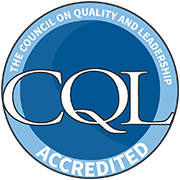When People With Disabilities Are Forced to Choose Between Love and Needed Benefits: Marriage Penalties
This Valentine’s Day, as many as 6 million couples will choose to celebrate their love by becoming engaged. But for many people with IDD, this dream of marriage forces them to choose between love and necessary supports to live independently.
When Jen Met Eddie…

Eddie and Jen first met while planning an Oregon self-advocacy event in 2006. They both noticed each other across a table and shared with friends that they thought the other was cute. Eventually, Eddie and Jen started getting lunch together and going out – and decided to become girlfriend and boyfriend.
At lunch one day, Eddie popped the question for the first time to Jen. She asked him to come to Christmas with her and ask for her parents’ permission. At Christmas, Eddie popped the question again. “I got on one knee and asked her hand in marriage. It was quite nice.”
Both Eddie and Jen are long-time professional self-advocates and knew of the Social Security and Supplemental Security Income (SSI) marriage penalties. The marriage penalties are punitive rules that cut benefits and limit savings for married couples who rely on critical Social Security SSI benefits.
While they wanted to get married, Eddie and Jen were terrified of what getting married would mean for their lives.
Jen, who has a spinal condition that requires 24-hour medical assistance, explains, “I would lose my Medicaid and have to pay out of pocket for medical needs, and I don’t earn enough to pay out-of-pocket for medications or other medical equipment.”
Eddie, who lives in an adult foster home, adds, “It would impact me significantly if I lost my benefits. I would have no money to live on…. I would have no place to live, [as the rental costs in my county are very high].”
In the end, Jen and Eddie decided not to pursue a legal marriage—and this has meant giving up dreams, big and small.
Both Eddie and Jen wanted to foster a child and become parents, and they believed that they would be great parents to a little boy or girl. However, without a legal marriage, this dream seemed far away. Now in their late 40s, they are not sure if it could ever happen.
And, while Eddie and Jen are committed to each other, not having a legal marriage means not having the legal backing to make medical decisions for each other if needed. According to Jen, “we’d like to [be able to] make medical decisions for our partner.” But, without the legal standing, Eddie and Jen may not be able to do this.
For the past several years, Eddie and Jen have been advocating to remove this unjust rule that no couple should have to deal with.
“It’s an unfair [rule] that has been around forever. We should be able to [get married and not worry about our benefits], just like everyone else. People don’t understand that people with disabilities are just like everyone else. We pay taxes, we work, [and] we contribute to society.”
Jen and Eddie’s story is one of many. Married people with disabilities often experience penalties that force the couple to give up necessary benefits to marry. This may mean taking a pay cut, working less, or having to quit a job altogether.
No one should have to decide between being legally married and getting the support they need to live in the community.








